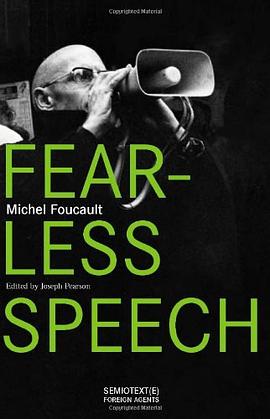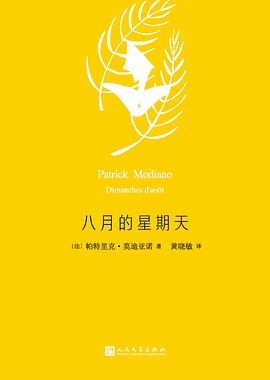Fearless Speech
内容简介
I would like to distinguish between the 'history of ideas' and the 'history of thought.' The history of ideas involves the analysis of a notion from its birth, through its development, and in the setting of other ideas, which constitute its context. The history of thought is the analysis of the way an unproblematic field of experience becomes a problem, raises discussions and debate, incites new reactions, and induces crisis in the previously silent behaviors, practices, and institutions. It is the history of the way people become anxious, for example, about madness, about crime, about themselves, or about truth.
.
Comprised of six lectures delivered, in English, by Michel Foucault while teaching at Berkeley in the Fall of 1983, Fearless Speech was edited by Joseph Pearson and published in 2001. Reviewed by the author, it is the last book Foucault wrote before his death in 1984 and can be read as his last testament. Here, he positions the philosopher as the only person able to confront power with the truth, a stance that boldly sums up Foucault's project as a philosopher.
.
Still unpublished in France, Fearless Speech concludes the genealogy of truth that Foucault pursued throughout his life, starting with his investigations in Madness and Civilization, into the question of power and its technology. The expression "fearless speech" is a rough translation of the Greek parrhesia, which designates those who take a risk to tell the truth; the citizen who has the moral qualities required to speak the truth, even if it differs from what the majority of people believe and faces danger for speaking it.
.
Parrhesia is a verbal activity in which a speaker expresses his personal relationship to truth through frankness instead of persuasion, truth instead of flattery, and moral duty instead of self-interest and moral apathy.
......(更多)
作者简介
Michel Foucault (1926-84) is widely considered to be one of the most influential academic voices of the twentieth century and has proven influential across disciplines.
......(更多)
目录
Editor's Preface 7
.
1 The Word Parrhesia 9
The Meaning of the Word 11
The Evolution of the Word 20
.
2 Parrhesia in Euripides 25
The Phoenician Women 28
Hippolytus 30
The Bacchae 31
Electra 33
Ion 36
Orestes 57
Problematizing Parrhesia 71
.
3 Parrhesia in the Crisis of Democratic Institutions 75
.
4 Parrhesia in the Care of the Self 89
Socratic Parrhesia 91
The Practice of Parrhesia 107
In Human Relationships 107
In Techniques of Examination 142
Concluding Remarks 167
Bibliography 175
......(更多)
读书文摘
......(更多)






